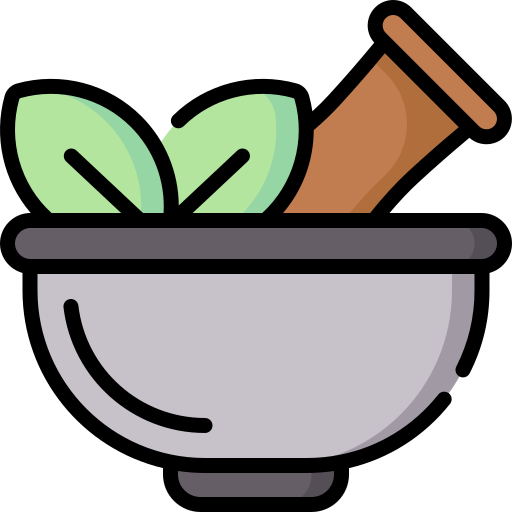No products in the cart.
Kasa (Cough)
Table of Contents

KASA(COUGH)
Kasa is the word derived from route word kas which indicates movement. In this disease there is movement of vatha in upward direction.
Types: Vataja – pithaja – kaphaja – kshayaja
Kshataja kasa should be differentiated from urahkshata.
Complications: Includes breathlessness, change in voice. Chronic rhinitis, heart diseases, rectal prolapse and vaginal prolapse. Fatal symptoms includes high fever haematemesis, excessive thirst, diarrhea, edema and hiccough.
For kshataja and kshyaja : samana – chikitsa should be done.
Apatya: Heavy, spicy, salty and vata provocating activities like excess physical activity, long fastings, awakening at nights should be avoided, smoking, shouting, grief and intake of cold substances should be restricted.
Frequent coughing usually indicates presence of a disease. It may occur due to reflex vagal stimulation.
Most of the time irregular coughing is caused by respiratory track infections but can also be triggered by choking, smoking, air pollution, asthma, gastroesophagella reflex disease, chronic bronchitis, lung disease, heart failures and because of some medication. Treatment based on the causative factor is to be done.
Samprapthi: #
Provocated apana vatha gets obstructed due to vitiation of remaining of doshas which makes it to move in reverse upward direction instead of moving in normal downward direction which in turn makes prana vatha to get disturbed which get lodged in the chest region – the main site of kapha. Accompines and causes the disease kasa.Nidana #
(Causes): Provoking factors of each dosha especially suppression of natural urges, exposure to smoke, dust, heavy exercises, lifting of heavy objects, reading in loud voices, fighting with animals, excess indulge in sex and diet containing food items of opposite qualities, hateful attitude, sorrow fullness and depletion.Types: Vataja – pithaja – kaphaja – kshayaja
Poorvaroopa: #
Irritation in throat, feeling of a small bristle like piece or corn stucked in the throat, difficulty in swallowing, smearing sensation in throat and pallet, change in voice, loss of taste, decreased digestive power, uneasiness in chest.Roopa #
(Symptoms): Frequent bouts of cough, pain in throat, chest, back, difficulty in talking, based on vitiated dosha the symptoms appear. Includes pain in vataja, burning sense in pittaja and fullness in chest.Kshataja kasa: #
It is due to injury to chest region which shows symptoms of dry cough followed by expectoration contains blood or yellow – brown – thick and foul smelling material from mouth, pain in throat, breaking pain in chest region with tenderness, change in voice and noise like hum of pegion, breathlessness, tremors, low back ache with incontinance of urine.Kshataja kasa should be differentiated from urahkshata.
Kshayaja kasa: #
The decreased digestive power provocates the three doshas which inturn are responsible for reduction in body elements that is dhatu kshaya which kasa with symptoms emaciation and weakness expectorated sputum is greenish foul smelling may contains blood and pus. During coughing patient feels as if his heart is displaced, Perverted liking of hot and cold things, appearance of peculiar type of luster and oilyness in face, eyes and teeth, palm and soles are felt smooth, irritable with stools either solid or liquid, fever, back ache and rhinitis.Complications: Includes breathlessness, change in voice. Chronic rhinitis, heart diseases, rectal prolapse and vaginal prolapse. Fatal symptoms includes high fever haematemesis, excessive thirst, diarrhea, edema and hiccough.
Line of treatment: #
For doshaja – snehana – shodana –deepana – samanaFor kshataja and kshyaja : samana – chikitsa should be done.
Patya – apatya: #
Patya: Intake of light semi solid unctious hot diet is advised, rest with little activity is avisedApatya: Heavy, spicy, salty and vata provocating activities like excess physical activity, long fastings, awakening at nights should be avoided, smoking, shouting, grief and intake of cold substances should be restricted.
Medication: #
sitopaladi churam, dasamoola haritaki lehyam, gokshuradi guggulu, balarista, kadhirarista, kamadugdha ras, yastimadhu churnam,Modern view #
Cough: Cough is a sudden expulsion of air through the large breathing passages that can help clear them of fluids, irritants, foreign particles and microbes. It is of two types- dry cough & productive cough.Frequent coughing usually indicates presence of a disease. It may occur due to reflex vagal stimulation.
Most of the time irregular coughing is caused by respiratory track infections but can also be triggered by choking, smoking, air pollution, asthma, gastroesophagella reflex disease, chronic bronchitis, lung disease, heart failures and because of some medication. Treatment based on the causative factor is to be done.
Updated on November 26, 2024
Powered by BetterDocs
 Doctor_Panel
Doctor_Panel






 INR
INR 



































